Nothing Can Break Nigeria Into Regions Let Alone Entities- John Dara

Giantability Media Network presents an exclusive interview with Dr. John Dara. Dr. John Dara is an outstanding political activist, social crusader, an astute businessman and Church leader. He is a pastor at the Disciples Transformation Church and the Chief Executive Officer of Chancellor House Ltd. He has worked at notable private and government establishments including the Ministry of Defence, Abuja, Nigeria. He studied English Language and Literature at the University of Benin, Nigeria. He is happily married to Titilayo Dara. This interview is poised to squeeze knowledge out of his wealth of experience and insight about workable solutions to the problems associated with the country’s cultural diversity, politics, insecurity and economic instability. Excerpts below:
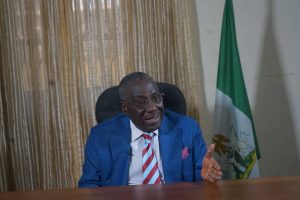
LHM: How do you perceive the efforts being channeled towards self-determination by agitators, especially from the 3 major ethnic groups, namely the Yorubas, Igbos, and the Hausas? Would you say they are steps in the right direction, and what results are foreseeable in the nearest or distant future? How comfortable are you with the developments in Nigeria, especially in relation to the unity and stability of the country?
John Dara: I once gave a lecture in Enugu, I was actually invited by a political wing as it was then, that was before IPOB. And I gave the view that what Eastern Nigeria needs is an economic and technological Biafra. You don’t give political Biafra. If you are what you claim to be, you are brilliant and capable, do it in your region. Now let federal allocation be just like a bonus to you. Be self-reliant and be self-sufficient. Let’s have an integrated regional plan for Eastern Nigeria with a blueprint on railways, airports, and roads that you are pulling your resources both home and in diaspora to do, and if you turn Eastern Nigeria to Belgium, we would all be proud of you. We don’t need visa to go there, in fact people would come and be spending their holidays there and investing there. But instead, there are all these funny claims, “we can make Nigeria great”, Oga, make your State great, make your region great. And during the 2014 National Conference, I was a delegate to 2005 National Conference and also a to the 2014 National Conference. One of the alternative proposals I made was that instead of regionalism or regional government, what we need are integrated regional development entities. At that time, we had development agency of Western Nigeria, we also had NDDC. So my view is that you need to sustain NDDC because of the oil production issues, but you need to create a South-South development agency, you need to create a Western Nigeria development agency, and similar agencies in each of the six geo-political zones. It was well received but it was not integrated into our report, because as at that time the North was pushing the agenda of North-East development commission, and they felt that making such development commission available to all the six geo-political zones was going to reduce the quantum of what will come to the North East. I argue that it need not be so, but it didn’t fly because the northerners opposed it.
However, I’m excited that Tinubu is implementing that now. It is not regional government, not regionalism, it is just that we are saying let the States in each geo-political zone, coordinate their development efforts, and let the synergy of their efforts create an accelerated progress for their region. So, we are not going to have a Premier for any region, it is not regional government, it just the federating units in each geo-political zones coming together. So, in my opinion, the agitation for separatism is a distraction. It is not well thought of, and I have asked people in the East whether they want a situation where they need visa in order to go to Port Harcourt, Benin, or Lagos. It is of no use to anybody. So if we maintain how we are now, the truth is that we are going to shock the world very soon. Nigeria is blessed, it is just that we are not doing a few things right, one of it is in the area of education. Why should Nigeria have such a high rate of illiteracy? why should we have so many out of school children? if we get all those right, believe me, Nigeria will explode in development and growth.
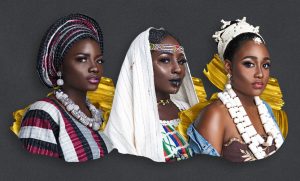
LHM: You contested for the Governorship position as an aspirant on the platform of the People’s Democratic Party (PDP) in Kwara State in 2003, alongside the former Senate President, Bukola Saraki, as well as in 2015, challenging the status quo of the Saraki dynasty, and as a Christian in a State that can be described as predominantly Islamic. What were your motivations and why did you not give it a try again, at least for the third time?
John Dara: Alright, first of all, it is correct that majority of the people of Kwara State are Muslims, but the majority of people of Kwara State are also Yoruba, and I’m a Yoruba man, therefore, the ethnicity favors me, even if religion does not favor me. The 2003 election is an unfortunate commentary on the internal democracy of the parties particularly PDP. On the eve of the primary, all the delegates went to the camps of their candidates. We had a total of 156 delegates, 107 were with me, 25 were with Bukola Saraki, but a party steward, specifically the then Vice president who was the campaigner of the party directed all my delegates, 107 of them, should be locked out, they were not allowed to enter. Then they added a motley crowd to the 25 of Bukola, and announced him as candidate. But I proved to them that a Christian can win the election in Kwara State. Everybody saw what happened, people were weeping and crying, gnashing their teeth because of the injustice, and the rest as they say is history. I tried to give it a second shooting in 2015, but I was no longer able to mobilize funds. There was no longer hanky-panky. The candidate that won, I congratulated him, I mean that won the primary. And again PDP was busy undermining him, in fact they wanted to take away the mandate from him after openly winning, they wanted to take it away from him. I fought as if it was my mandate, and it was because of my experience in the previous election that make me to standby Ajibola, but he could have won the general elections very easily, but even his own party was undermining him during that election, so he lost. Fortunately for my crew, PDP pushed us out in 2018 when Sakari, who had made Jonathan to lose elections by moving to APC, he lost out in APC and was coming back. The executive that my team had put in place, they unilaterally dissolved it, and gave him a blank cheque to set up the executive of Kwara State. So we angrily moved out to APC. Today, our team is in charge of Kwara State, away from PDP’s shenanigans. So that is the true story of my experience in Kwara State.
LHM: What ignited in you the courage and confidence to contest for the position of the President of Nigeria, even after you attempted that of the Governor of Kwara State twice without success? Were you intentional and deliberate about it or you only played to the gallery?
After that, I moved and focus on running for President, but the truth is that I didn’t have the kind of resources people had to become a President. I was banking on some big whips to finance my campaign, which they did not do and I cannot blame them, it is their money and it is up to them to decide whether they want to spend on me or not, even though they were full of praises, ‘you are fantastic, you are the best presidential material, you are this…’, they did not put their money where their mouth was. Now I’m close to 70, honesty I have lost interest in any competitive politics and I don’t want to contest in any election. Even if I have all the money now, I would rather put it on my son or people of their generation. I think after Tinubu; we should be looking at younger generation of leaders. Although, I was aware that I have that kind of political network but you need a lot of money to make it produce votes and make you become president. Now, I have excellent relationship with some very wealthy people in this country and we discussed, they agreed they would provide the required funding. So I wasn’t playing to the gallery or just testing the waters, no, I was banking on them, but that is the difference between my aspiration and Tinubu’s aspiration. Tinubu had his money, he didn’t need anybody’s sponsorship. In fact, he is arguably the first president Nigeria has produced who was not sponsor by anybody, it worked. In my case, once my backers backed out, I was stranded and I knew the game was over. So that was it, but I believed that the lessons learnt from it will only enhance my capacity to make kings in Nigeria.
LHM: You talked about age that you are getting to 70 and with that you are stepping out from politics, is age a barrier in Nigerian politics?
John Dara: No, I am not stepping out of politics, I’m stepping out from running for office. Age is not a barrier, but it is also a barrier. I mean, president Trump is now the oldest elected president in the history of America. In the good old days of the Soviet Union, you cannot even be head of the Soviet Union, usually the Secretary General of the Communist Party, unless you are there in the party for donkey years. So, nearly all their former presidents were old men. The age thing dropped under Brezhnev Leonid. I am simply saying that having old men at the helm of our affairs does not stop a country from function well, but my own personal view is that, it is time for me to slow down in politics, hold office if I am offered one, but don’t go through the stress for contesting for any election. My first son is 43, he is old enough to be president, governor, senator, house of Rep, so what I am dragging with them. My attitude is personal sacrifice, let us encourage the younger generation, and we need to make a conscious effort to groom them in other for them to be ready to do these things, because most of them don’t even understand the issues at stake, they don’t understand the complexity of our country, so they may not be able to manage things well. So, it is not enough to say you want a younger generation, you have to prepare them deliberately. So I actually believe we can do that.
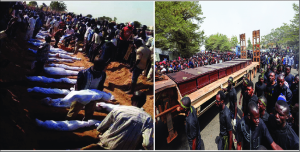
LHM: Going by your active participation in the activities of the Middle Belt Forum, where you were the National Secretary from 2012 to 2017, what is your take on the issue of marginalization, and the incessant killings of the Plateau and the Benue States indigenes in the clashes between the Fulani herders and farmers during the 8th year tenure of the former President Muhammadu Buhari, as well as the frequent invasion of some States in the Middle Belt, what do you think were the motivations behind the conflicts and is an end to the problems in view?
John Dara: One of the tragedies of Buhari’s dispensation is that he did not use his position to promote harmony in Northern Nigeria. In fact, whether he admits it or not, he has driven a wedge between the Middle Belt people and the people of the far North. The Middle Belt people suffered so much at that time and the presidency was like if you love your life give up your land. It was so insensitive, however that should not define us permanently. What I have been advocating in the whole of Northern Nigeria with the era of a group feeling superior to another is long gone as a matter of fact, Middle Belt people are better educated than the people of the far North, that is the reality. Two-third of the lecturers in ABU are from Middle Belt. So you cannot relate to Middle Belt in a presumptuous or arrogant way anymore, you can only build up harmony in Northern Nigeria on the basis of mutual respect, on the basis of give and take. Now, the northern Nigeria wants Middle Belt people to cooperate with them, but our experience in the past was that when we cooperated with them and when we succeeded, they would want to claim all the benefits for themselves. Eight years of Buhari’s administration, what did he do for the Middle Belt people? So it is therefore going to take time for Middle Belt people to trust any leader from the far North. That is the consequence of that. But managing our pluralism as a nation demands that we actually develop State by State, rather than being over-dependent on the center. What I mean is that if Benue State is doing well, if Sokoto State is doing very well, if Rivers State is doing well, then the tension would reduce, take for instant what was the quarrels? It was land, the cattle rearers were feeling the pressure of climate change, dessert encroachment was getting worse, but that is due to the carelessness of previous administrations. We have warned them long ago, we have been budgeting money for creating a green belt in the Sahel region, but the money was stolen through corruption.
The main cause of the conflict was that cattle rearers needed where they could get grass, where they could get water. So if you had managed dessert encroachment in those days, you would have less pressure from the cattle rearers, but that is only part of the problem. The second question is the fact that the traditional method of cattle rearing has been obsolete. There is a young man, the younger Nyako, the son of Admiral Nyako in Adamawa, who has a dairy company now. He is promoting ranching, because animals that are not roaming about produce more milk. He is not even getting enough milk from all the supplies around, so he is consciously promoting ranching. This again is something that the State government from Sokoto, to Kebbi, to Zamafara, to Kano should have been promoting, and if they have been doing that, then the issue of cattle rearers looking water is no longer going to be there, because you can provide everything that the cattle need, a ranching settlement, a livestock settlement, where there would be water, grass and even grains for feeding the animals, and all you would be doing is that trailers will be bringing fodder, that is grass from everywhere it is available. We just need to change our livestock production and management practices.
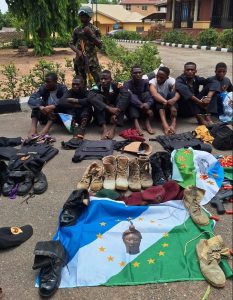
The third cause of the conflicts between Middle Belt and far North is the attempt to aggressively promote Islam. Again, it is no brainer that there is nothing on earth that can make the Christians to give up their faith. They have been beheaded for it, they have been shot for it and they never changed. So for somebody to think otherwise, we will kill them off, it shows that you are not intelligent. The time will come when they may be in fact stronger militarily than you, because Middle Belt people survived the jihad, that is why they are Christians. They survived because they are war-like tribes, so you cannot say you want to impose Islam on Numan people of Adamawa by violence, they would fight back. So it doesn’t make any sense and the time has come for us to put behind all those outdated ideas, allow freedom of religion in Northern Nigeria, allow freedom of commerce and even settlement. No reason why a Fulani man cannot come and live happy in Jos, Makurdi, or in Ofa. There is nothing stopping you from coming to live with us, but don’t impose your religion on us, don’t insult us by undermining our culture. I was the sole author of the issue of indigenization during the 2014 National Conference and it was adopted wholesale, one hundred percent. Any Nigerian has every political right anywhere in Nigeria. You can be a Fulani man living in Rivers State and decide to run for the Governor of Rivers State, it is up to the people of Rivers State to vote for you, but as a citizen you have that right. The other thing is that you cannot go and say that you want to be the traditional ruler of the people of Rivers State, because you are not an indigene. So the traditional institutions are the only no go area for non-indigenes, but economically, politically, you have every right as a citizen in any part of the country. So what are we fighting for? That is why for me, the way of peace is a change of mindset. Some of our people don’t want to change, but changed would be forced upon them, it is inevitable.
LHM: As a media man, how would you describe the activities of the Nigerian media, and to what extent would you say they have been instrumental to the needed enlightenment of the Nigerian people, with regards to holding their Government to account in a democracy, as well as speaking truth to power?
John Dara: Alright, thank you. I believe the Nigerian media is very vibrant and that is good for democracy, however, they are not sufficiently committed to the development of the country. In fact, an unfortunate phenomenon is crippling in. You can predict what the position of a Yoruba journalist would be on some issues, or an Igbo journalist or Hausa journalist. In other words, ethnicity is coloring their opinions, and that is a dangerous thread. Right now, the people who are vehemently opposed to Tinubu, we know their ethnic backgrounds. It is predictable what they are saying and that is not good for Nigeria. Let us look at Tinubu program’s objectives. From the days of General Gowon, Nigeria had a development plan that he was not able to implement because it was in the last days of his administration and there was the civil war. So in the last days, they did a blue print and the emphasis was on deregulation, decentralization, and productivity, to self-reliance for the nation. It was not implemented. Obasanjo tried to implement it, so he introduced what is call austerity measures. It was painful, but because of the cry, he backed down. He didn’t follow through with that program. Then General Babangida came, and it is the same national consensus, on deregulation, decentralization and enhanced productivity. So Babangida tried to implement it through what he called Structural Adjustment Program (SAP). Whenever we are trying to do anything about the deregulation, decentralization, free economy, market driven, people will have started shouting IMF, World Bank. The policies (in IMF), there are Nigeria involved in formulating those policies from the day of Kanu, we have Nigerians there, who are part of the IMF, World Bank, and the consensus is that the world economy and each nation economy do better in a deregulated free market environment, but whenever we want to implement it here, they would lament that the pain is too much, then the government would back out. It happened in Jonathan’s regime too. Tinubu and the APC element were demonstrating against Jonathan. We can consider that it is politics, they wanted to discredit the government of the day so that they could win power, but the point is that the responsibility of the media is to educate the public to make necessary sacrifice and adjustment, so that we can put this behind us. We need to consistently follow through with this and get it behind us. I have no problem if a political party says, “I don’t believe in free market, I believe in socialism, welfarism”, in which case they are providing alternative approaches. That is fair, but for the media in Nigeria to continue to just parade all the beer parlor discussing about killing us, no, that is not what is going on. We are doing economic reforms because rightly or wrongly we believe that free market is the way forward for Nigeria. The media needs to be more objective because they are the ones who can educate the public about the desirability or otherwise of this thing. I’m not saying that the media would even not accommodate the alternative views too, but in a situation where all we are getting from the media is an anti-government posturing is not good for the nation, we need to move forward. Lastly, the social media is a problem everywhere in the world, because it’s not regulated, it is not being used by professionals, anybody can say anything on social media. Therefore, we need a stronger push by the traditional media outlets in other to get the nation to be more informed, otherwise I think we are not doing badly. We are a very vibrant nation, where we say anything to our President. I think that is fair enough.
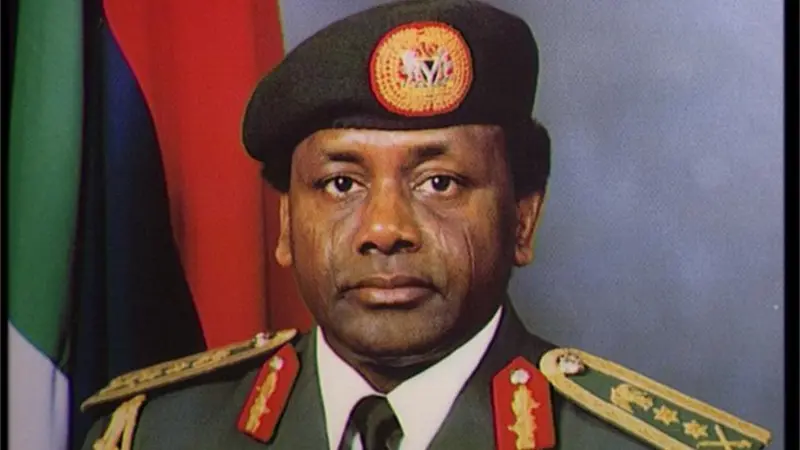
LHM: As an advocate for integrity in governance, how would you describe the differences between the military administrations, which some describe as an aberration, and the few democratic dispensations that Nigeria has had and currently has in terms of benefits and infrastructural developments? In other words, how do you compare a military regime with that of democracy without dividends?
John Dara: Well, the military government by its nature is dictatorial, and therefore is less accountable to the public. However, it has its own advantages. Government leaders are able to push their agenda too with less distractions. You know the legislative arm is normally suspended during military regime. So they are not really accountable, but it also means that they can implement things more aggressively and perhaps sometimes more effectively. Nevertheless, democracy is by far superior, because the key to development is mass participation of the citizens, because we are now more involved, when we are finally persuaded. It is easier for all to say “arise oh compatriots, let move”. So I think we need to appreciate the superiority of democracy, and Nigeria should never consider military rule anymore, it’s out of the question. This is because it will undermine our credibility in the Committee of Nations. It means we are unable to govern ourselves except with stokes or under the barrel of a gun. We need to show that we as a people are capable of ruling ourselves even without undue cohesion, and that is why democracy is better. It is going to benefit us more, we need to support this dispensation, we’ve been free from the military since 1999. I believe that we’ve done better than we really appreciate.
The military achieved more in terms of infrastructural developments because they are able to push through programs with little or no resistance. The military can construct roads through your territory and you would not have people who are saying they want compensation and they would block the road or kidnap the construction workers. But I think there has been rampant corruption in recent times that undermine our ability to build infrastructures. Something is happening now by which we should commend the nobles. For the first time the Lagos-Calabar costal road, that we have been talking about since I was a toddler, we are now building it. It is ongoing. We do not appreciate what a quantum leap that can be for us. The same thing, the Sokoto-Badagry expressway, they’ve started construction. And these are because the money we are using for subsidy has now been freed from subsidy, it can now be diverted to the construction. I think two factors undermined the civilians, the democratic dispensation from building infrastructure, the overdependence on subsidy and the corruption factor. I commend Tinubu for recognizing that fighting corruption is not just about catching thieves. It is about providing structures that make it difficult for anybody to steal. And there are practical administrative and accounting measures that once somebody is not given value for money to the nation, we should know, and that is what I think he is trying to introduce as an accountant. With what, we are going to make tremendous progress in this dispensation, in terms of building infrastructures.
So already, I was traveling by road to Ekiti State recently. I was surprised that the Kaba, Ekiti road has gone far in the construction and the paving, they have expanded it. So, that is how a lot of work is going on in many parts of the country. In other words, it is not just the new major highways, but the repair of the existing ones, are ongoing, just because we removed all the wastage we have been doing in terms of subsidy payment. I think if we sustain this in the next four years, it will be glaring, and you can see the difference even in the FCT. The amount of work done in the last one and the half years in FCT, is more than the total of what is done in 8 years of the previous administration. So, we need to face the fact that things are changing and commend and support the government. I am not in any government; I am just telling you that it is way the to go if we want to make progress as a nation.
LHM: Why are Nigerian politicians corrupt and what roles can the wives of politicians play in the lives of their husbands to achieve good governance and vice versa?
John Dara: well, I don’t know much about wives in making people to perform well. It is no brainer that if you have a good and stable home, you would be able to function better, but you cannot as a matter of policy or strategy say you want to encourage wives to help their husbands to do better. In any case, that is already assuming that all the rulers are men, so what about the women who are also in the ruling class, so their husband should be the one to help them. Alright, I think what we should emphasis is that where there is no consequence, human beings are prone to commit crimes. Believe me, it is everywhere. The rule of law is not about human nature being good. No, you must take it from me that where there is no consequence, human beings will commit unspeakable atrocities. So, what we need to ensure is that corruption is prevented, and where it happens, it is heavily punished. A situation where someone steals 10 billion and then he enters into plea bargain and he returns 2 billion, and he is going on living large, well beyond what his legitimate income should have been, is not good for the nation. We should make is so costly that the reputation of a corrupt public officer should be ruined, the punishment should be so severe that no nobody wants to take the risk of doing it and getting caught. Of course it means we need a more efficient monitoring system. Even the whistle blower program introduced was part of it. To that extent, I think we are not doing badly.
LMH: To what extent would you say the roles of religion, be it Christian or Islam, are becoming inconsequential, going by the attitudes of the Nigerian politicians in matters of integrity in governance?
John Dara: I am a pastor and I know that religion has helped me a lot in forming my character. There are things that I would have been inclined to do but I cannot do because of my faith. Therefore, religion cannot be a negative influence on the citizens. It is just that we have a tendency not to practice what we preach. If all Muslims live according to the ethics of Islam and all Christians live according to the ethics of Christianity, we will have a moral and peaceful society. Unfortunately, we only pay lips service to faith. Therefore, for me, it is immaterial, whether you’re a hypocrite or not, what the society should do is to put in place, a system of catching thieves. Every criminal should be made to pay for the crime, and the rule of law is critical if we really want to sustain democracy. So corruption is not a native of Nigeria or any country, it is where it finds opportunity it thrives. Remove that opportunity and you will get a saner society. I gave a lecture in the University of Ilorin some years back on how to fight corruption and my emphasis has always been on prevention and of course making sure that there is consequence if anybody is caught. That is the way go to. Thank you.
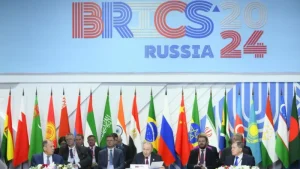
LHM: Is BRICS the sure way to go for Nigeria, and how would you react to the alleged proposed BRICS currency with that of Nigeria having the name of the country inscribed on it in the Hausa language?
John Dara: Alright, let me say this that BRICS is something we should embrace courteously, very courteously. Nigeria was part of the non-aligned nations during the cold war. The non-aligned movement became less relevant because the cold war is presumed to be over, but the truth is that the cold war has been revived with Russia-China forming the arrow end of the left wing, while America-Europe remains the leaders of the right wing. Nigeria’s tradition has been with the Western world because of our colonial history. But as a way of asserting our independence, we tend to show that we are not going to be tied only to the West, and so we dance a little to the left and a little to the right. That’s fair enough. But where BRICS is being packaged as an anti-west entity, we don’t want to be part of that. So that is why we have not joined fully, we are simply saying we are not averse to what you’re doing. Now in Nigeria, we tend to major in minor. The idea of writing our name in Hausa with BRICS, is a little mischievous because it was not done transparently. It should have been something we would debate and discuss and say “look, the most widely spoken language in Nigeria is Hausa, so it is better for us to use one of our indigenous languages than to be using the colonial language, which is English.” So there are good intellectual arguments for using one of our own native languages. The three major tribes may say “no, we don’t want to suggest superiority of one over the other, so we don’t want Hausa, Igbo or Yoruba. We want a minority tribe language to be used.” But the issue is, even the rest of the country, would not know the meaning of what has been written if we do that. So there are all kinds of approaches to it. My attitude is okay, we have submitted our name in Hausa, nothing is wrong with it in my opinion.
We like to major in minor things. Look, what matters to the average citizens is how well the economy is doing. Even most of the political issues we are raising, will become less significant when the economy is booming. So, “where does the President come from? How many ministers are from his tribe?” These are the kind of bickering that underdeveloped countries do. China has many ethnic groups that when they speak, they don’t understand one another’s languages. The two major versions of Chinese language that the world knows is one of the thousands of the variance of the Chinese language. So, you won’t even know which region their ministers come from. They are Chinese, end of story. When President Jimmy Carter was President of America, it was the first time an American Southerner became President in USA, and the Time Magazine reported that Washington was being changed because you have so many people speaking with Georgian drawl. They call it drawl because they have a peculiar way of speaking. So their insinuation is that Jimmy Carter brought people from his State, not even his region, to dominate his government. President choose people that they know. That is presidential system. The parliament is where you must be represented evenly, not the executive. But here in Nigeria, we are so tribalistic that everything is seen through the prism of tribalism. Also Clinton, his running mate was also from the same region. Nobody cared whether he picked his running mate from far North or far South, no. They were practically from the same belt. It is not an issue. I believe Nigeria will get to the point where such things will become of little relevance. Thank you.
Interview by Juliet Dangiwa
Cover Photo: Sampson Adeniyi
Graphics Design: Deborah Oyindamola Samuel
Transcript and Editing: Kofoworola Rachael Oladoke

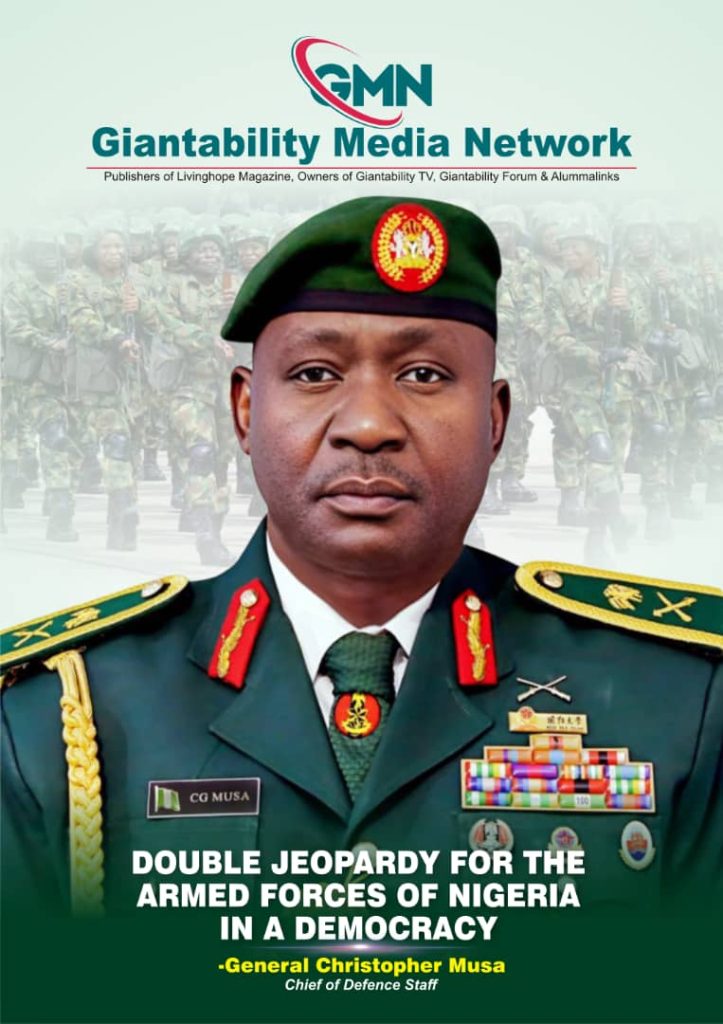
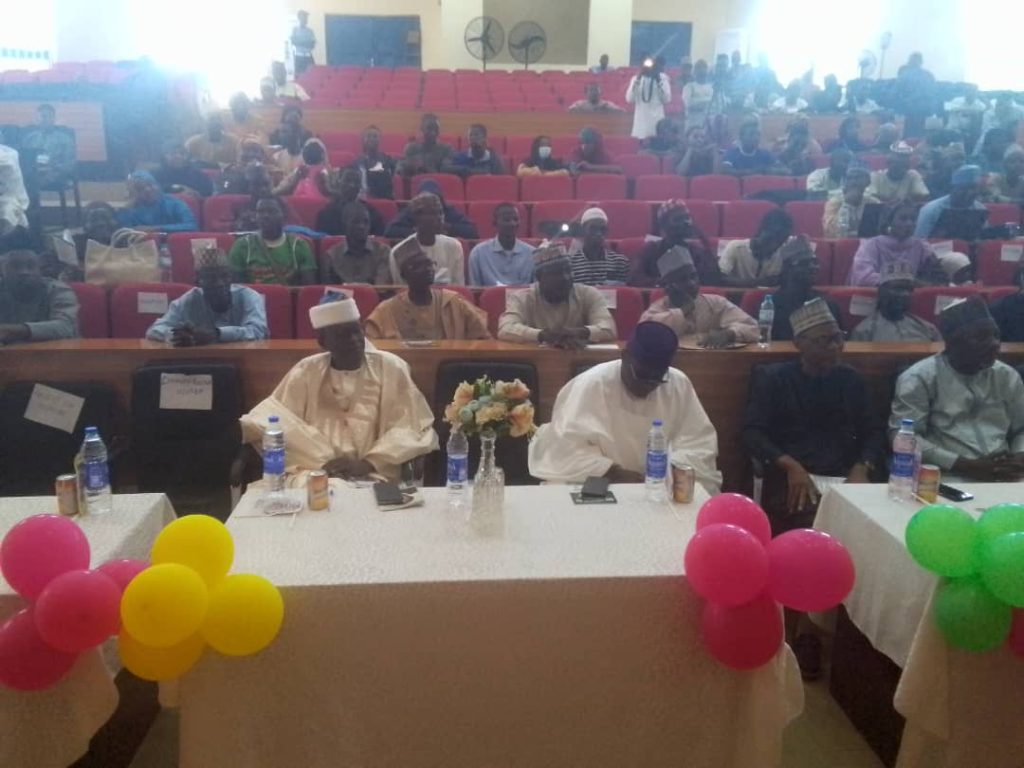

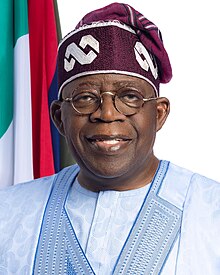
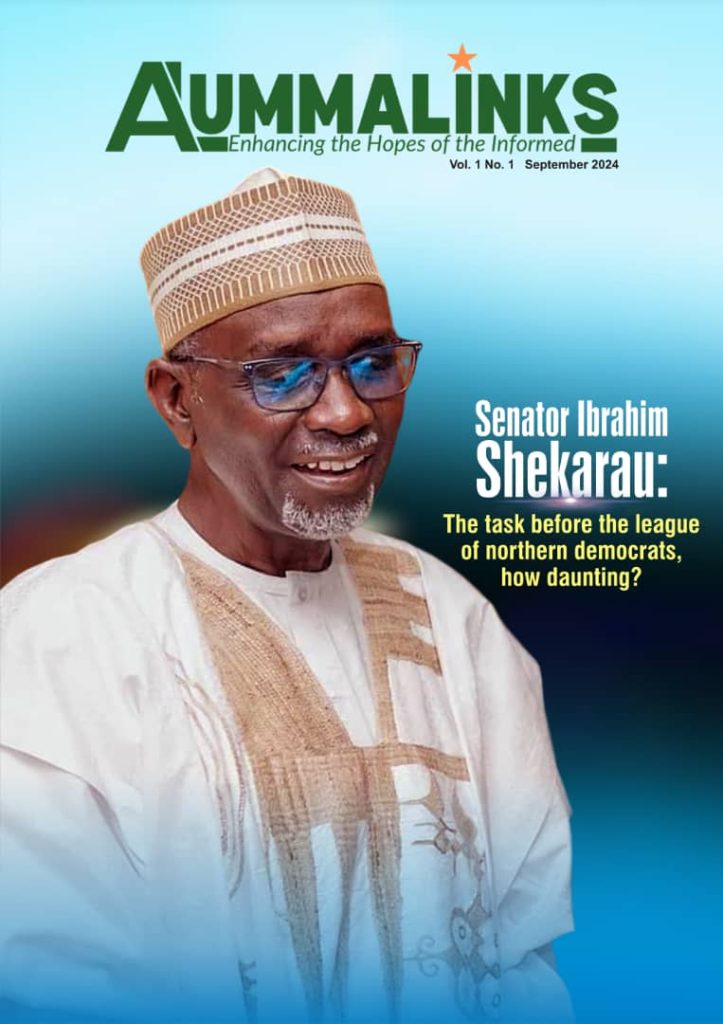
Responses